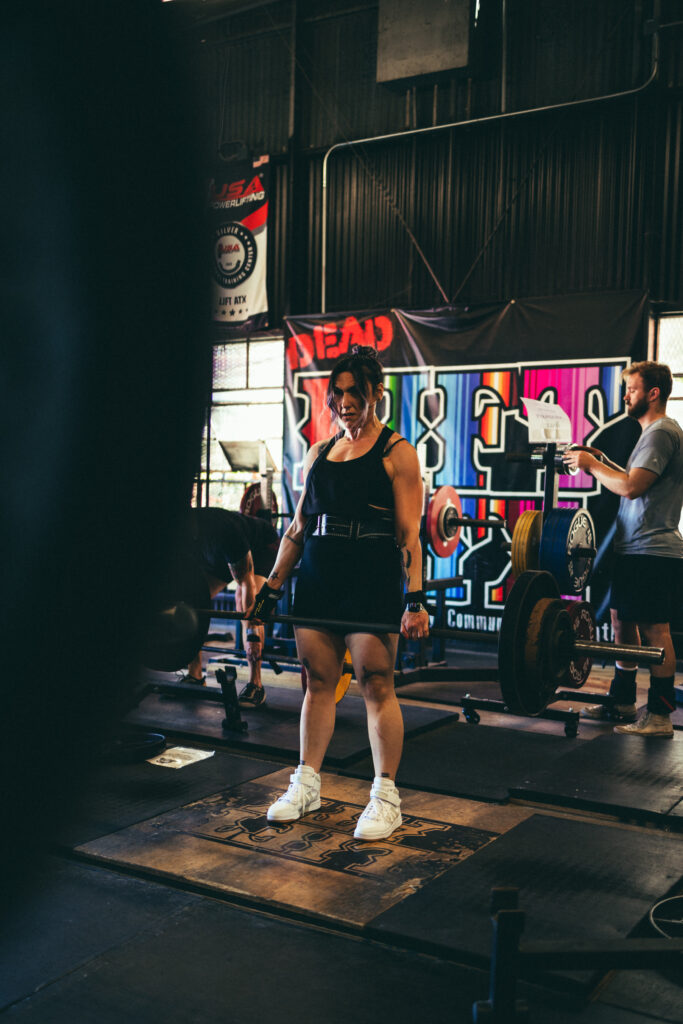
What Cancer Has Taught Me
August 21, 2024
This is a guest post by Teri Wight, 51, a teacher and a chromophobe renal cell carcinoma survivor based in…
Read More

Kate Zalewski, RDN, CSR, LDN is an experienced renal dietitian who owns a virtual private practice primarily helping people with chronic kidney disease delay or avoid dialysis. KCA Ambassador Annamarya Scaccia spoke with her about misconceptions around nutrition and kidney health, eating to build muscle, and how to protect your kidneys while pursuing fitness.
Annamarya Scaccia: As a fitness and nutrition coach, I worked specifically with kidney cancer survivors or people concerned with kidney health. And the one complaint I always here when they first come to me is that they won’t build the muscle they want if they can’t eat a high-protein diet. Now, as a competitive bodybuilder, I know that’s not true. But help me dispel this myth.
Kate Zalewski: There is a misconception that you must be on an insanely high protein diet to build muscle. But building muscle is about more than just the amount of protein consumed in a day. One thing to consider is proper timing of protein intake in proximity to your workouts to promote muscle growth. When you have a smaller amount of protein to work with, being strategic with timing of protein intake around strength training becomes even more important. Another factor to consider is not food-related at all. You also need to ensure you are following the right type of strength training program that will help you reach your body composition goals. Just winging it and hoping you’ll build muscle without a concrete plan on how to get there is not likely to get results.
Annamarya Scaccia: What do most coaches and dietitians get wrong about protein and kidney health?
Kate Zalewski: There are several myths out there about protein and the kidneys. One myth is that protein is damaging to healthy kidneys or can cause kidney problems in healthy people. For people without reduced kidney function, we just don’t have evidence that high protein intake alone contributes to kidney damage. Another myth is that a kidney-protective diet should be as low in protein as possible. This is not true. We need a baseline amount of protein—it is a nutrient, after all! But I see many clients who are afraid to eat any protein foods at all. Being overly restrictive on protein could be just as dangerous (if not more) than overdoing it, leading to conditions like protein energy malnutrition. Finally, there is a persistent myth that plant proteins are not a good option for kidney health. This is because plant foods (including plant proteins) are often high in potassium and phosphorus—two nutrients that could potentially become elevated in the blood when the kidneys are damaged. However, the need of any nutrients for the kidneys is very dependent on the individual’s labs. There is not one single “kidney diet.” Also, based on current evidence, the phosphorus from plant foods is minimally absorbed and doesn’t have much impact on blood phosphate levels. And potassium from the diet likely has little impact on blood potassium levels. There are many things besides diet that could impact potassium in the blood.
Annamarya Scaccia: Why do you think such misconceptions exist when it comes to renal nutrition?
Kate Zalewski: Renal nutrition is challenging because there is simply a lot of outdated info out there still floating around, doctors perpetuate a lot of that outdated info, and there is no one single kidney diet. The dietary needs can look different based on the extent of the disease or damage and an individual’s lab values, so it’s easy to get confused and overlook the nuance of the individual situation. This is why working with a kidney specialist dietitian is so helpful because they can help you understand your labs and needs, and tailor a diet exactly right for you.
Annamarya Scaccia: How are protein and kidney health connected?
Kate Zalewski: Protein is a nutrient that’s important to be mindful of with kidney health. When we digest protein, it is metabolized to waste products that the kidneys have to filter. Protein foods also produce acids, which must be neutralized. Therefore, when kidney function is impaired, higher protein foods create more pressure on the kidneys and more work for the kidneys to process. However, as mentioned before, it would be a mistake to attempt to go as low protein as possible to try to prevent damage to the kidneys. Protein is a nutrient, and we need a baseline amount to live and stay healthy. There is such a thing as a “very low protein diet,” but this should only be done with guidance and supervision from your physician and dietitian and is only used in very specific cases.
Annamarya Scaccia: For kidney cancer survivors looking to incorporate strength training into their fitness routines, how would they need to adjust their diets so that they’re both protecting their kidneys and building muscle?
Kate Zalewski: When aiming to protect kidney health but also promote muscle growth, I suggest incorporating a greater number of proteins from plant-based foods. These types of foods are gentler on the kidneys than protein-rich animal proteins like red meat because they create less pressure on the kidneys. There is a myth that plant proteins aren’t as “good” as animal proteins for building muscle, but by consuming a variety of plant proteins every day, you’ll still get all the same amino acids that are required for muscle growth and synthesis.
Annamarya Scaccia: Not every kidney cancer survivor needs to follow a strict renal diet, so what are some general rules to keep in when trying to maintain kidney health?
Kate Zalewski: For optimal kidney health, step 1 is always staying well hydrated. It’s also important to keep blood pressure levels well controlled. For many people, this involves limiting or being mindful about total daily sodium intake. Another must for kidney health is eating a diet rich in fruits & vegetables. A diet high in fruits & veggies reduces the acid load from the diet—kidneys help balance acid in the blood, so less acid from the diet means they have less work to do. The fiber found in fruits and veggies also promotes healthy bacteria in the GI tract. We have emerging studies that gut health is strongly linked to kidney health.
Annamarya Scaccia: But for people with chronic kidney disease who are into fitness, what are some key nutrition tips to keep in mind to make sure they are protecting their kidneys?
Kate Zalewski: Drink enough water! I can’t emphasize this enough. Drinking enough water is probably the most important thing you can do to protect your kidneys. If you are regularly getting dehydrated, even mild dehydration, this can begin to cause kidney damage. Some reasons for the damage include greater concentration of waste products in the blood that the kidneys must filter, as well as changes in hormones that regulate blood pressure that could lead to kidney damage.
Annamarya Scaccia: Why is it important to consider your kidney health when you are getting into fitness—whether you have reduced kidney function or not.
Kate Zalewski: The kidneys do many different things in the body, but the most important thing to know about them is that they filter the blood. Everything we consume (food, drinks, alcohol, dietary supplements, medications) is digested and broken down to various components—some that are useful in the body, but some of which are waste products that must be eliminated. Those waste products are processed and eliminated through the kidneys (and/or liver). When getting into fitness, you might feel like a drastic change is in order in terms of what you eat & what types of dietary supplements you need to use to reach your fitness goals. Unfortunately, there have been many cases of people experiencing changes in kidney function due to misuse or excessive use of certain dietary supplements. Be mindful that there is very minimal regulation over the dietary supplement industry, so even in a person with normal kidney function, you could be contributing to kidney damage when using a sketchy supplement. Another risk is starting off with physical activity that is too intense. This could bring on a condition called rhabdomyolysis that could lead to kidney damage or even kidney failure when muscle tissue breaks down to components in the blood that the kidneys are unable to filter fast enough. Finally, staying well hydrated when starting a physical fitness routine is important, as dehydration is known increased risk for kidney damage, as well as risk for developing kidney stones.
Annamarya Scaccia: Anything else that you’d like to add that I may have missed?
Kate Zalewski: The importance of the kidneys is often overlooked. Most people don’t even think about the kidneys or appreciate what they do until there is a problem with them. But when there is a problem, it can feel like your whole life suddenly revolves around the kidneys! So, it’s important to recognize how much the kidneys do, and understand that your diet and lifestyle can make a big difference for kidney health — whether you have healthy kidneys currently or whether existing kidney damage or loss. If your doctor (or anyone) tells you that diet doesn’t make a difference for your kidneys, or “just keep doing what you’re doing,” be skeptical of that, and seek out the guidance of a kidney nutrition specialist to help you get on a path to better kidney health and better overall wellness.
Need a renal dietitian? Visit the National Kidney Foundation at www.kidney.org/ckdrd for a list of kidney specialist dietitians, both online and in your local area.